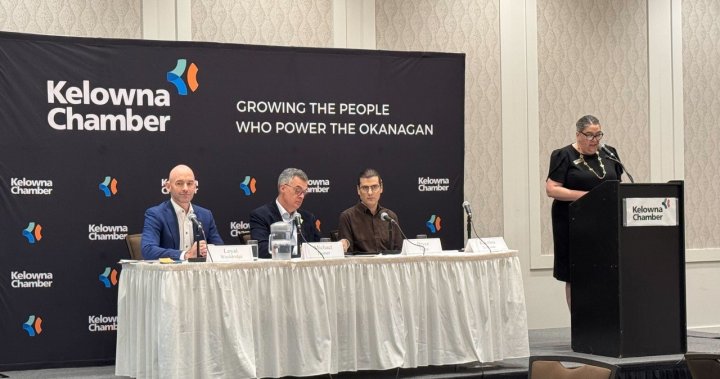In the lead up to the 2024 provincial election in British Columbia, a trend has emerged involving Conservative candidates who are choosing to avoid all-candidates debates and media interviews. This has raised concerns among political experts and voters about the candidates’ commitment to engaging with the public and participating in the democratic process. Hamish Telford, a political science professor, believes that participating in debates is an essential part of running for public office as it provides voters with a chance to see the candidates in action and practice for their potential role as MLAs.
In the Central Okanagan region, candidates Kristina Loewen and Tara Armstrong have been notably absent from debates. When questioned about their absence, both candidates cited their focus on door-knocking and connecting with voters on a personal level as their reasons for not participating in debates or media interviews. This decision has been met with criticism from residents who feel that avoiding debates is a disservice to voters and raises questions about transparency and accountability. Some residents have questioned what the candidates may be trying to hide by not engaging in debates.
Observers like Telford believe that the trend of Conservative candidates avoiding debates and media interviews may be centrally organized by the party leadership. Telford suggests that the party may fear that inexperienced candidates could potentially make damaging remarks or not perform well in a debate, leading to a preference for face-to-face interactions with voters instead. Conservative Leader John Rustad defended his candidates’ decision to prioritize face-to-face engagements with voters, stating that they are actively engaging with people in their ridings and will continue to do so leading up to the election.
The decision of Conservative candidates to avoid debates and interviews has sparked a debate about the role of candidates in engaging with the public and the media during election campaigns. Some argue that debates are a fundamental aspect of democracy and provide voters with valuable insights into the candidates’ positions and abilities. The absence of candidates from debates raises concerns about transparency, accountability, and the candidates’ willingness to address important issues in a public forum. It also highlights the tension between traditional campaign practices and the evolving strategies of modern political campaigns.
As the election date approaches, the question of whether Conservative candidates will continue to avoid debates and media interviews remains unanswered. While some candidates emphasize the value of personal interactions with voters, others argue that participating in debates is a crucial aspect of running for public office. The trend of candidates avoiding debates may have repercussions on voter perceptions and the overall democratic process, as voters expect candidates to be accessible, transparent, and accountable. Ultimately, the decision of candidates to prioritize door-knocking over debates raises important questions about the changing dynamics of election campaigns and the responsibilities of candidates in engaging with the public.













